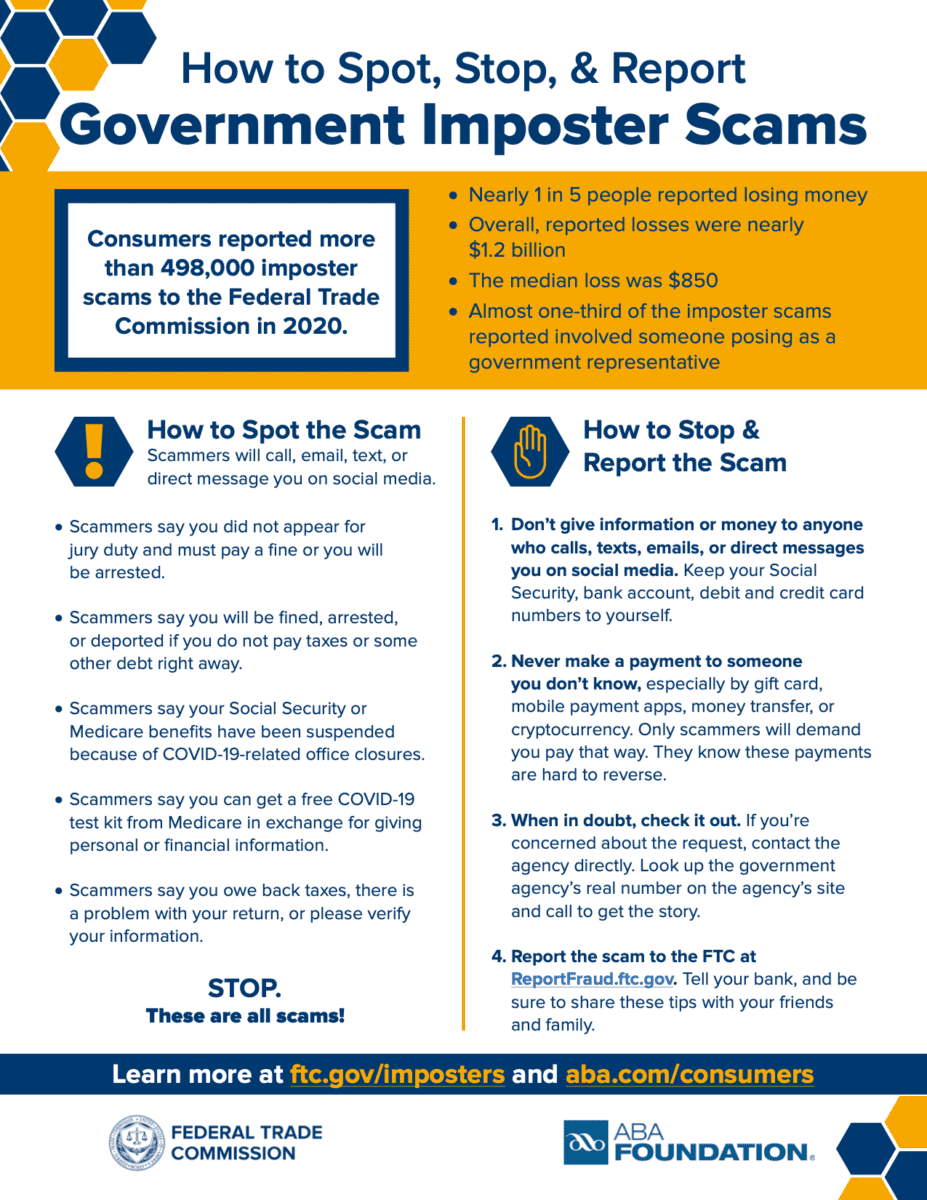Today’s scams, aren’t old tricks
Published January 1, 2022By Shelia Kirven
“Hello, this is Jessica, and I’m calling about your car’s extended warranty.” “We are calling you from Amazon, and we show that you have an outstanding invoice of $400 with us.” “Hello, I’m calling to help you with the problem you’ve been having with your email account.” Most people have received these calls.
These calls are common scams. Experts suggest it’s best to hang up immediately or don’t even answer the call in the first place. Potential scams are an everyday part of our lives. Sometimes it can be hard to know what’s real and what’s not.
To some this may be annoying, but to many it can be a scary experience. These scams can come through our phone, email, mailbox, fraudulent credit card charges, online apps, dating sites and sometimes even from uninvited visitors to our doors.
Scammers may promise something if the person on the other end sends them money, guarantee prizes from sweepstakes, lottery or even promise to help you with some problems you may be having (such as computer problems). Scammers make false promises and trick victims into giving them personal information. They can even call with threats of sending you to jail or claiming to file a lawsuit against the victim if they don’t pay.
One common scam is a “Yes” scam. According to the FCC, the scam begins as soon as a person answers the phone. A recorded voice or an actual person asks: “Can you hear me?” And the consumer responds, “Yes.”
The caller then records the consumer’s “Yes” response and thus obtains a voice signature. This signature can later be used by the scammers to pretend to be the consumer and authorize fraudulent charges via telephone,” an FCC news release said.
Those with caller ID should also use caution when answering the phone. Some scammers change the phone number to look like a local call, something called “spoofing.”
Advance fee schemes happen when someone asks the victim to pay money to get something in return, such as a loan, contract or gift. Experts suggest using common sense when something appears to be too good to be true.
Do not make any financial arrangements until talking to someone you trust about the situation, such as a bank, attorney or the authorities. Other types of these scams promise a prize or vacation that you have “won,” but they need your personal information and sometimes even a fee to claim your prize.
Sadly, even some who claim to be with charitable organizations can be scammers. During times of natural disaster and emergencies, scammers work double-duty to try and appeal to the sense of concern.
If a request is received from someone who says they need a donation, it’s best to suggest doing personal research first and contacting the organization directly.
Visit the Federal Trade Commission’s online resources for validity records of a charity, how much goes to the charity, and their ratings. Those who do donate should do so with a check or credit card, so there is a record. If the “charity” suggests using cash, gift card or wire transfer, it is probably a fraudulent request.
Another scam is Internal Revenue Service impersonation. These imposters may try to contact victims through telephone calls, email, text or mail.
If a scam call is received, victims are encouraged to ask the caller to provide their name, badge number and a callback number. Then contact the IRS yourself to verify the caller. Remember not to pay any money over the phone or wire it, don’t trust it if caller ID says “IRS” as the number may have been spoofed, and don’t click any links on emails or text messages that ask you to verify your information. If you become victim to an IRS scam, contact the Treasury Inspector General for Tax Administration (TIGTA) by calling 1-800-366-4484. Email messages that claim to be from the IRS can be forwarded to [email protected].
Ransomware is another common scam. Ransomware is malicious software or malware that cybercriminals use. If downloaded onto a computer by opening an email attachment, clicking an ad, following a link, or even visiting a website with malware embedded, it can lock the computer and files.
For more ways to stay safe and up to date on all scam and fraud trends, visit the FBI’s Common Scams and Crimes webpage.

Provided by the Federal Trade Commission